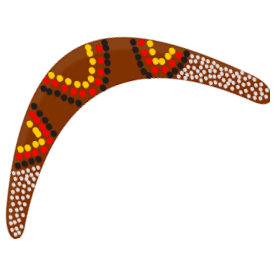Aboriginal Tribes’ Development – Demolishing The Myths
By Wendy Ittensohn 2014
The aboriginal or First Nations peoples of Australia have long been surrounded by myth and prejudice.
Even though this situation has improved radically over recent decades, nevertheless, these misconceptions continue to proliferate – particularly in the area of what some would call Aboriginal tribes’ development.
Let’s have a look at some of these myths and what is the underlying reality.
The Aboriginal peoples want lots of charity
No, they don’t. The idea is, in fact, offensive to many.
It is or should be, a discredited view that is frequently found bundled together with assumptions that the people of the First Nations need to somehow be “more like us”.
In fact, in terms of Aboriginal tribes’ development, what is required is a greater understanding of their cultural origins then using those as a valid foundation for building leadership qualities within them that will allow them to stand confidently shoulder-to-shoulder alongside other more recent Australian cultural traditions.
What some Aboriginal societies need is expertise to help them rebuild the leadership and confidence infrastructure of their culture. Nobody can actually do that for them but it is possible for people to assist by providing appropriate frameworks for such development.
Aboriginal peoples don’t have any self-confidence
To the contrary, they do.
However, 200 years of marginalisation and being treated as a cultural irrelevance (at best) has meant that their confidence has been submerged under a vast weight of socially-inflicted self-doubt.
Using appropriate techniques, the peoples of the First Nations are shown to have the same potential for self-confidence and self-development as any other of Australia’s populations.
Aboriginal peoples only look backwards and want to live in the old days
This is often heard and is wildly inaccurate not to say patronising.
There are no doubt people of the European Australian culture who believe everything was better in 1950 and some presumably believe things were better even further back than that. Some might wish to turn the clock back if it were possible.
However, they are a relatively tiny minority of the population.
Aboriginal peoples understand that they live in an Australia that has changed out of all recognition from that of the 18th century. The vast majority have no desire to try and recreate some version of a pre-European Australia.
What they do wish is to see their culture developed and valued alongside others so that they can play a part in the future development of the wider Australian nation.
They honour and respect their past but are also desperate to look forward with enthusiasm to the future.
Those people who believe that for members of the First Nations, ‘ Aboriginal tribes development ‘ means turning the clock back to some sort of pre-industrialised civilisation are making just as irritating a cultural assumption for Aboriginals as when outsiders suggest to other Australians that their ancestors all arrived on convict ships from the UK.
It is simply not true.
The First Nations peoples don’t want outside help
This is also sometimes heard, even though it is exactly the opposite of the other common myth that the Aboriginal peoples want lots of charity.
The reality of life here is very simple.
The Aboriginal peoples of Australia and the Torres Islanders are more than willing to learn and take relevant advice and guidance from any other party in Australia.
However, it is important to them that such help is relevant in their cultural context and not simply the attempt to impose values and systems which they historically have never shared and do not wish to adopt.
Aboriginal tribes’ development is not about imposing solutions upon them!
Article Source: https://EzineArticles.com/expert/Wendy_Ittensohn/1709340

